This Week in Apps: Elon buys Twitter, new App Store rules, gambling ads backlash
Welcome back to This Week in Apps, the weekly TechCrunch series that recaps the latest in mobile OS news, mobile applications and the overall app economy.
Global app spending reached $65 billion in the first half of 2022, up only slightly from the $64.4 billion during the same period in 2021, as hypergrowth fueled by the pandemic has slowed down. But overall, the app economy is continuing to grow, having produced a record number of downloads and consumer spending across both the iOS and Google Play stores combined in 2021, according to the latest year-end reports. Global spending across iOS and Google Play last year was $133 billion, and consumers downloaded 143.6 billion apps.
This Week in Apps offers a way to keep up with this fast-moving industry in one place with the latest from the world of apps, including news, updates, startup fundings, mergers and acquisitions, and much more.
Do you want This Week in Apps in your inbox every Saturday? Sign up here: techcrunch.com/newsletters.
Top Stories
Musk buys Twitter
It’s official, Elon Musk now owns Twitter. In typical Musk fashion, the transition has been nothing but chaotic, with the deal closing just ahead of the deadline set by the Delaware Chancery Court — the court where Musk was planning to try to exit the deal by claiming Twitter had misled him about the number of bots on the platform. (He was really looking to get the price down, of course!) In any event, the Telsa and SpaceX exec now has a new toy and everyone is waiting to see what comes next. Earlier, Musk had hinted at layoffs, then later retracted his statements, saying he wouldn’t fire 75% after all. However, he did immediately clear out the C-suite, including CEO Parag Agrawal, CFO Ned Segal, General Counsel Sean Edgett and Head of Legal, Trust and Safety Vijaya Gadde — a sign that he’s planning to fill out Twitter’s top ranks with execs who will do his own bidding and not fight for the Twitter of days past.
Still, Musk’s talk about a Twitter that’s more permissive of “free speech” doesn’t quite align with his message to advertisers posted shortly after the deal’s close: He promised marketers that Twitter can’t turn into a “free-for-all hellscape.” That’s clearly a tacit acknowledgment on Musk’s part that advertisers don’t want to post their content next to hate speech-filled tweets. And despite Musk’s plans to grow Twitter’s subscription business, around 90% of Twitter’s revenue today comes from advertising. Given what he had to pay to own Twitter, Musk probably doesn’t want to have to pay to keep it running, too.
App Store Review Guidelines now give Apple a cut of NFTs, in-app advertising
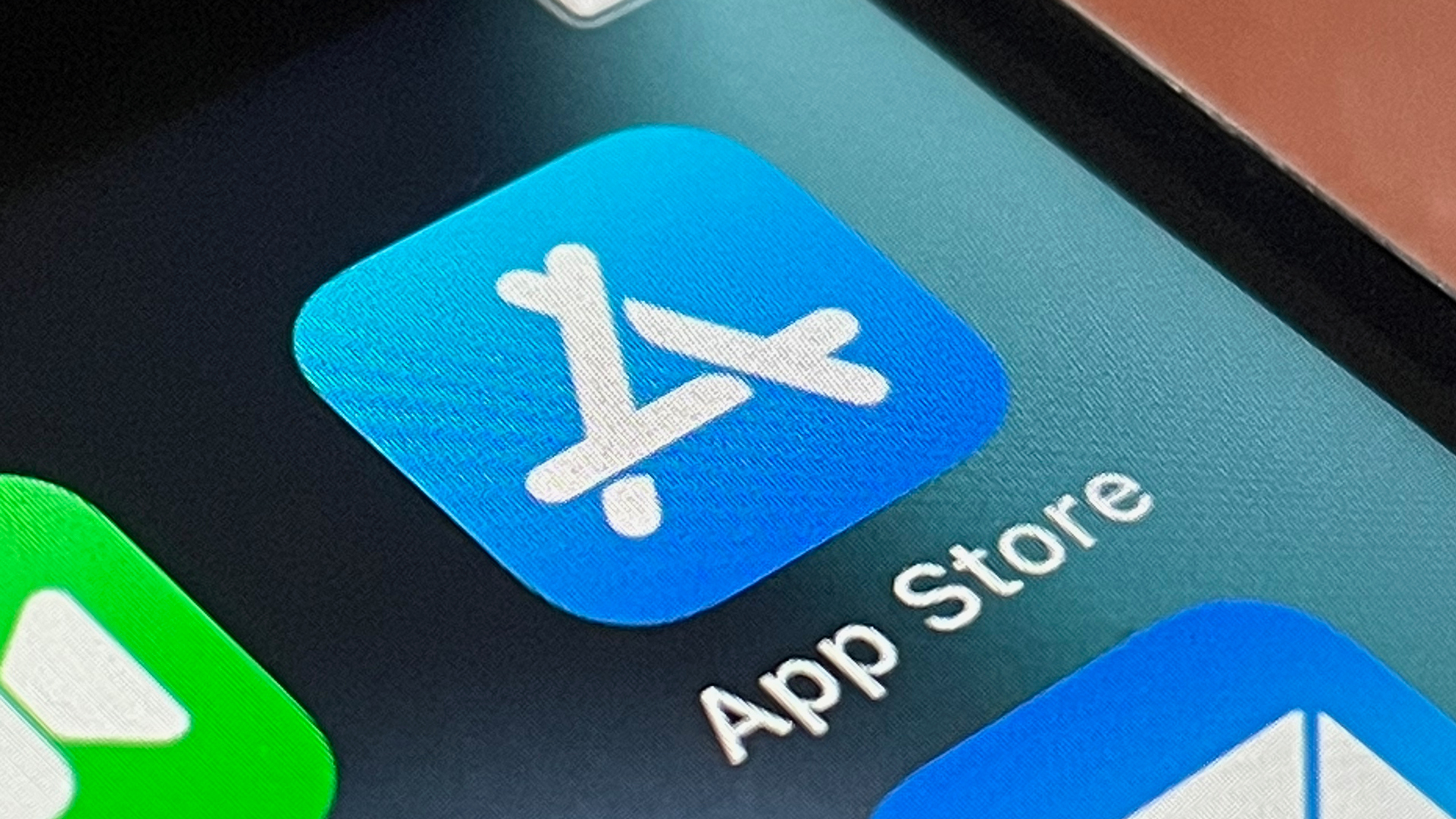
Image Credits: TechCrunch
Along with the launch of iOS 16.1, Apple also introduced new App Store Review Guidelines. Among the major changes were two new rules designed to give Apple a bigger slice of the NFT market and Meta’s core advertising business.
The company said apps will be allowed to list, mint, transfer and let users view their own NFTs, but clarified that owning an NFT could not be a shortcut to unlocking any more features in an app. In other words, the ownership of an NFT shouldn’t be a way to route around Apple’s in-app purchases. In addition, Apple said NFT apps can’t display external links or other calls-to-action to purchase NFTs — that can only take place through Apple’s own in-app purchases system, as well.
This change is not all that surprising. As the web3 market grows, Apple wanted to find a way to stake its claim on the revenue and transactions that are occuring inside these new apps. Plus, it’s a better consumer experience for NFT marketplace apps to not just function as a showcase for users’ purchases, but as a place where users can actually transact.
The other big rule adjustment, however, is a bit more startling. In a bold move, Apple essentially said it deserves a cut of Meta’s ads business as well as any other social app. The new rule around social media apps now states that purchases of “boosts” have to flow through Apple’s in-app purchase system.
This could impact any app that sells the ability to boost a post to a wider audience, like Meta (Facebook, Instagram), TikTok, Twitter, dating apps and others. Meta, of course, took significant issue with this change, saying that Apple’s policy undercuts others in the digital economy after Apple had previously said it wouldn’t take a share of developer ad revenue. While Meta isn’t exactly a sympathetic player here, it’s concerning that Apple has decided it can now tax advertising inside iOS apps at the same time it runs its own expanding ads business. That seems like a move regulators will need to look into asap.
App Store gambling ads backlash
Speaking of Apple’s ads business…The company’s App Store ads platform expanded this week to include new ad slots like the main Today tab and a “You Might Also Like” section at the bottom of individual app listings. The slots are available in all countries as of October 25, except China. The ads have a blue background and an “Ad” label to differentiate them from other listings.
Developers, however, were immediately disturbed by the instant deluge of gambling ads that appeared marketed alongside their own, including against kids’ applications and, in at least one case, a gambling addiction recovery app. This was a poor look for Apple. After all, the gambling category itself is already controversial — many developers would rather not share an app marketplace with these often predatory apps in the first place, much less have them advertised alongside their own.
Apple at least moved quickly to respond to the backlash by “pausing” gambling ads and a few other categories on App Store product pages, but the company didn’t say how long this pause would last or what it planned to do about the situation in the long term.
Spotify accuses Apple of anti-competitive behavior, this time around audiobooks
Just ahead of its Q3 earnings, Spotify published a blog post that again accused Apple of anti-competitive behavior with regard to its launch of audiobooks in the U.S. On an accompanying website, Spotify noted that its app update to include the audiobook expansion was rejected three times without “clear direction” as to what needed to be changed to come into compliance. The site details Spotify’s criticisms of Apple’s platform, explaining how Apple requires audiobook purchases to use Apple’s own in-app purchases — or, if selling elsewhere, prevents Spotify from telling users why, where or how to make those purchases outside of iOS.
Because Spotify wants to avoid the 30% IAP commission, it doesn’t let users buy audiobooks in its app. Instead, users select the book they want to purchase and are emailed a link that points to a website where they can complete the transaction.
“The Audiobooks purchase flow that Apple’s rules force us to provide consumers today is far too complicated and confusing — confusing because they change the rules arbitrarily, making them impossible to interpret,” Spotify’s blog post stated.
The company has regularly battled with Apple over its App Store policies but is sometimes seen as an unsympathetic victim due to its size, revenues and its role in moving the music industry to streaming, which artists say doesn’t pay.
Weekly News
Platforms: Apple
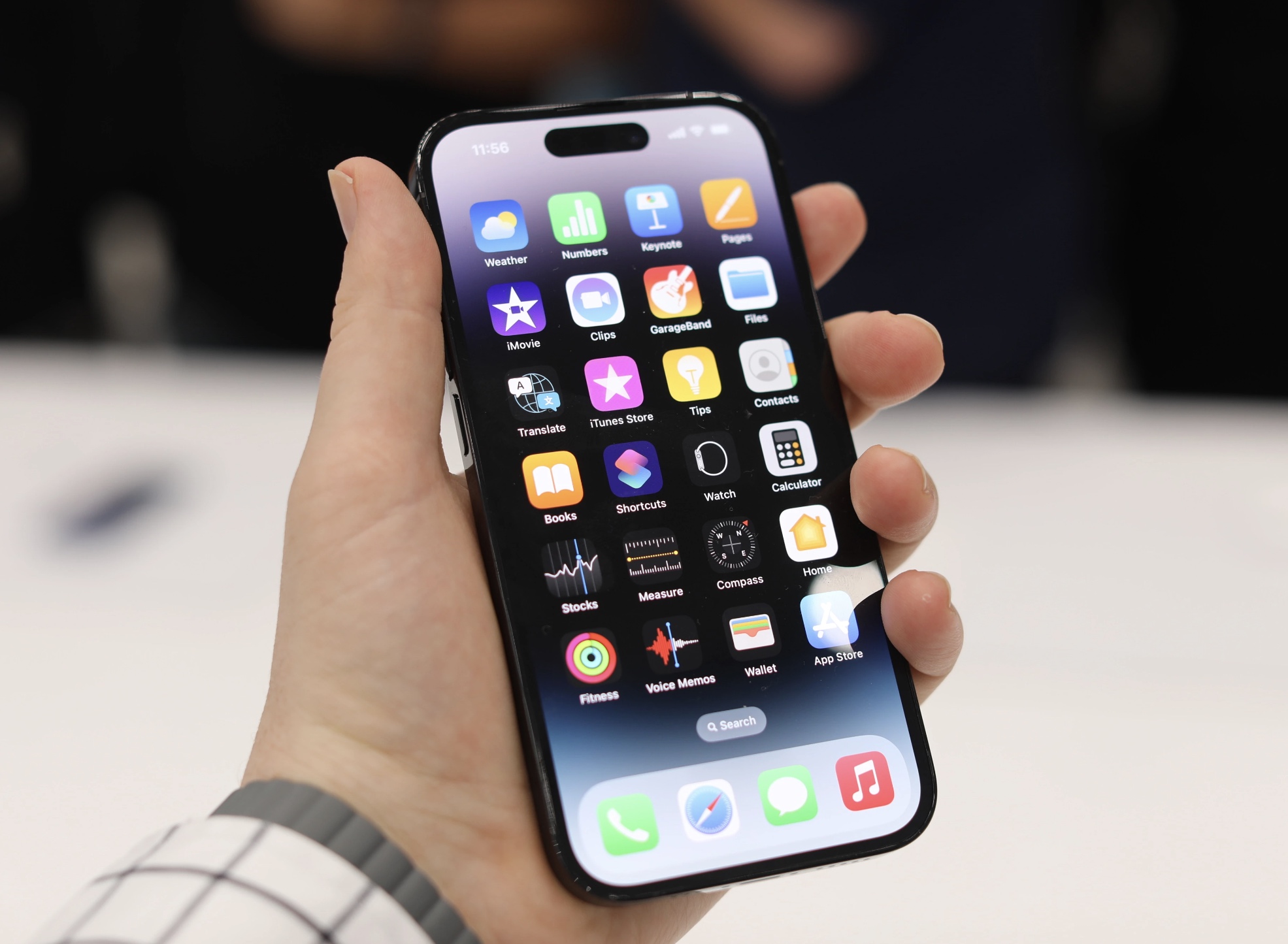
Image Credits: TechCrunch
- Apple released iOS 16.1, iPadOS 16.1, macOS Ventura and watchOS 9.1. The updated software delivers new features like iCloud Shared Photo Library, Continuity Camera, Stage Manager for the Mac and iPad, Live Activities, Apple Fitness+ for iPhone and more.
- Apple expanded its App Store ads platform to include the main Today tab and a “You Might Also Like” section at the bottom of individual app listings in all countries on October 25, except China. The ads have a blue background and an “Ad” label to differentiate them from other listings.
- SKAdNetwork 4.0, which lets advertisers measure ads’ success, became available in iOS 16.1 and iPadOS 16.1 this week.
- Apple also released the first betas of macOS Ventura 13.1, iOS 16.2, and iPadOS 16.2 which included the new Freeform app, announced at WWDC. The app is a whiteboard app that lets you create sketches notes, files, documents and more, which can be accessed across devices.
- Apple reported its Q4 earnings with iPhone revenue up 9.67% YoY to $42.63 billion, Mac up 25.4% to $11.51 billion, but iPad revenue down 13.06% to $7.17 billion. Wall Street was expecting iPhone revenue of $43.21 billion, sending the stock down in late trading. Other products were $9.65 billion (up 9.95%) and the Services division, which includes the App Store, was up 4.98%.
Platforms: Google
- Google filed a brief opposing Epic and Match’s recent motion to amend and expand their antitrust claims in the ongoing antitrust lawsuit against the Android maker. In it, Google disputes that its incentive program for developers to publish to the Play Store would prohibit developers from creating competing app stores, as alleged. It also noted the motion from Epic and Match comes too late, after the December 3, 2021 amendment deadline.
- Google hosted its Android Developer Summit where it announced the first stable release of Compose Material 3, the library that allows developers to build Jetpack Compose UIs with Material Design 3.
- The company also announced updates across three main areas of Jetpack: architecture libraries and guidance, application performance and user interface libraries and guidance. It noted that 90% of the top 1,000 apps use Android Jetpack.
- Google introduced a Gradle Bill of Materials (BOM) specifying the stable version of each Compose library. The first BOM release, Compose October 22, contains Material Design 3 components, lazy staggered grids, variable fonts, pull to refresh, snapping in lazy lists, draw text in canvas, URL annotations in text, hyphenation and LookAheadLayout. And it launched the first alpha of Compose for Android TV.
- Android Studio got updates, too, including updated templates for Wear OS. And Google launched a stable Android R emulator system image for Wear OS.
E-commerce & Food Delivery
- The FTC sanctioned Uber-owned Drizly, an alcohol delivery service, and its CEO Jason Rellas for data security abuses that saw the personal information of the company’s 2.5 million customers exposed. Drizly will have to implement a security program, destroy unnecessary data, implement new security controls and train employees and cybersecurity.
- Amazon began letting select U.S. customers pay with Venmo on its website and in its mobile app, with plans to roll out the support to all U.S. customers by Black Friday.
Blockchain
- Twitter began testing a blockchain-agnostic tool that allows users to display their NFTs in tweets in partnership with Dapper Labs, Magic Eden, Rarible and Jump.trade. The feature is only available to select users at this time.
Fintech
- PayPal added support for Apple Passkeys on iOS, iPadOS and macOS, with more platforms to come. Passkeys are a new industry standard created by the FIDO Alliance and the World Wide Web Consortium — in partnership with Apple, Google and Microsoft — that are designed to replace passwords.
Social
- New analysis indicates India’s homegrown TikTok clones, like Moj and Josh, haven’t been able to replicate TikTok’s success in the country following its ban, leaving Instagram and YouTube to take over the short-form video market locally.
- Meta added Reels to Facebook Groups, noting that most Facebook users are members of at least 15 active groups and that there are 100 million-plus group joins every day.
- Snap reported its slowest quarterly revenue growth ever in the third quarter. The social app maker missed analyst expectations with $1.13 billion in revenue, versus $1.14 billion expected, leading the stock to drop from $11 to $8 in late trading on the day of the earnings announcement. DAUs, however, were up 19% YoY (up 53 million) to 363 million in Q3. The company said it also plans to close its San Francisco office, which was only lightly used due to remote work policies.
- The Snapchat app rolled out Director Mode, a feature offering TikTok-like tools including a green screen, quick edit and camera speed features, as well as a BeReal-like dual camera mode.
- Pinterest reported its Q3 revenue was up 8% YoY to $684.6 million, above estimates of $666.7 million. However, global MAUs remained flat YoY at 445 million, above estimates of 437.4 million. The stock jumped 11% on the news.
- Meta announced its Q3 earnings with revenue down 4% YoY to $27.7 billion, net income down 52% YoY to $4.4 billion, DAUs across its apps up 4% YoY to 2.93 billion. The stock dropped 25% on the revenue decline as investors voiced concerns about how much Meta is spending on its metaverse ambitions.
Dating
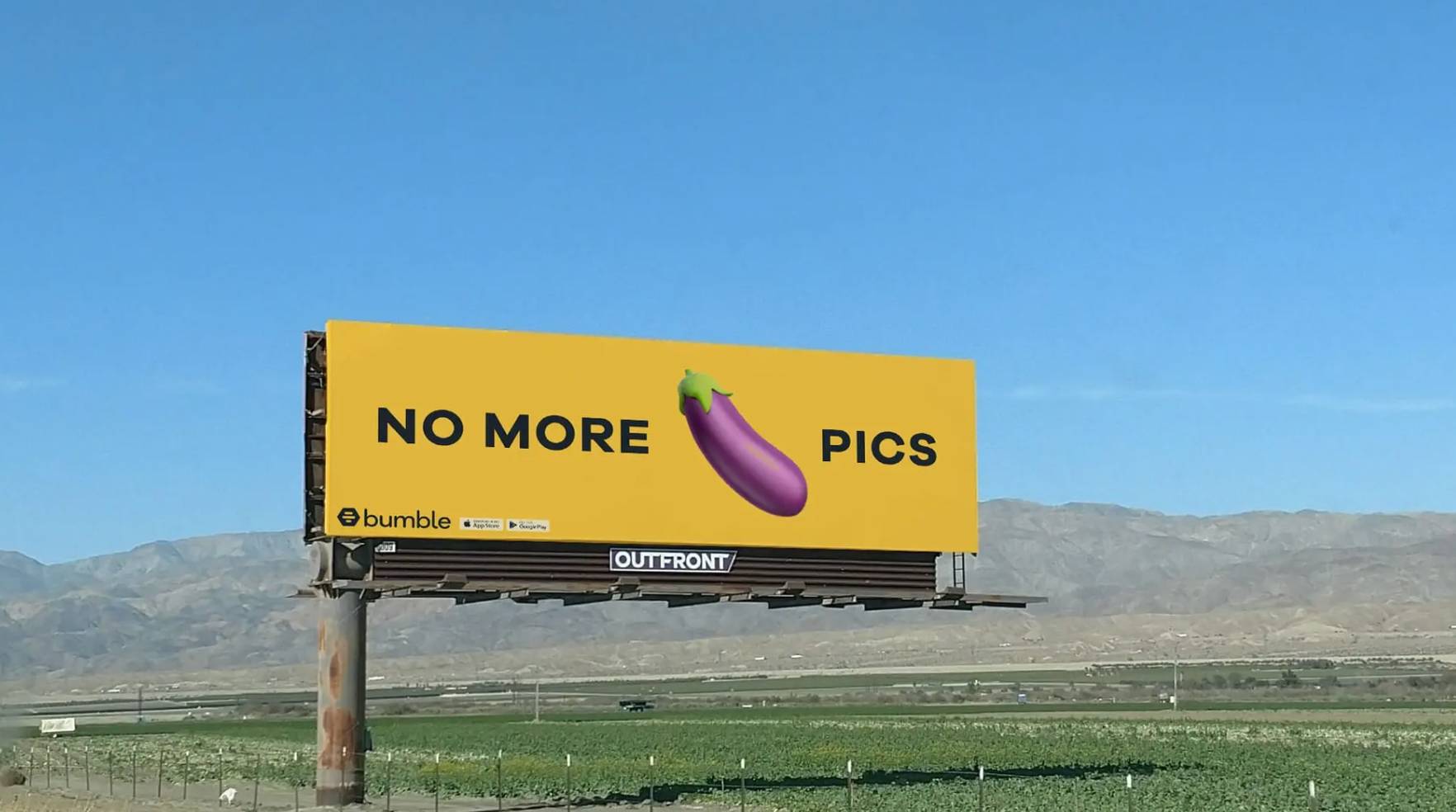
Image Credits: Bumble
- Bumble open sourced its AI, Private Detector, which the app uses to detect unsolicited nude images. (Get it?) The app gives the user the choice as to whether or not to open the image when a potentially lewd photo is detected. Now other apps can access the same technology.
- Match-owned dating app Hinge will add a profile verification feature in November that will ask users to take a video selfie in the app as part of a crackdown on scammers.
Messaging
- Telegram said it plans to auction usernames via the TON blockchain, a move inspired by an auction for wallet usernames that saw some selling for as high as $200,000. Founder Pavel Durov suggested other elements of the Telegram ecosystem could become a part of this marketplace in the future, including channels, stickers or emoji.
- Apple’s communication platforms, iMessage and FaceTime, went down on Tuesday afternoon, following an earlier more than two-hour outage from WhatsApp, making it a pretty bad day for trying to text and call.
- WhatsApp now has 2+ billion DAUs, Meta announced during its Q3 earnings.
Streaming & Entertainment
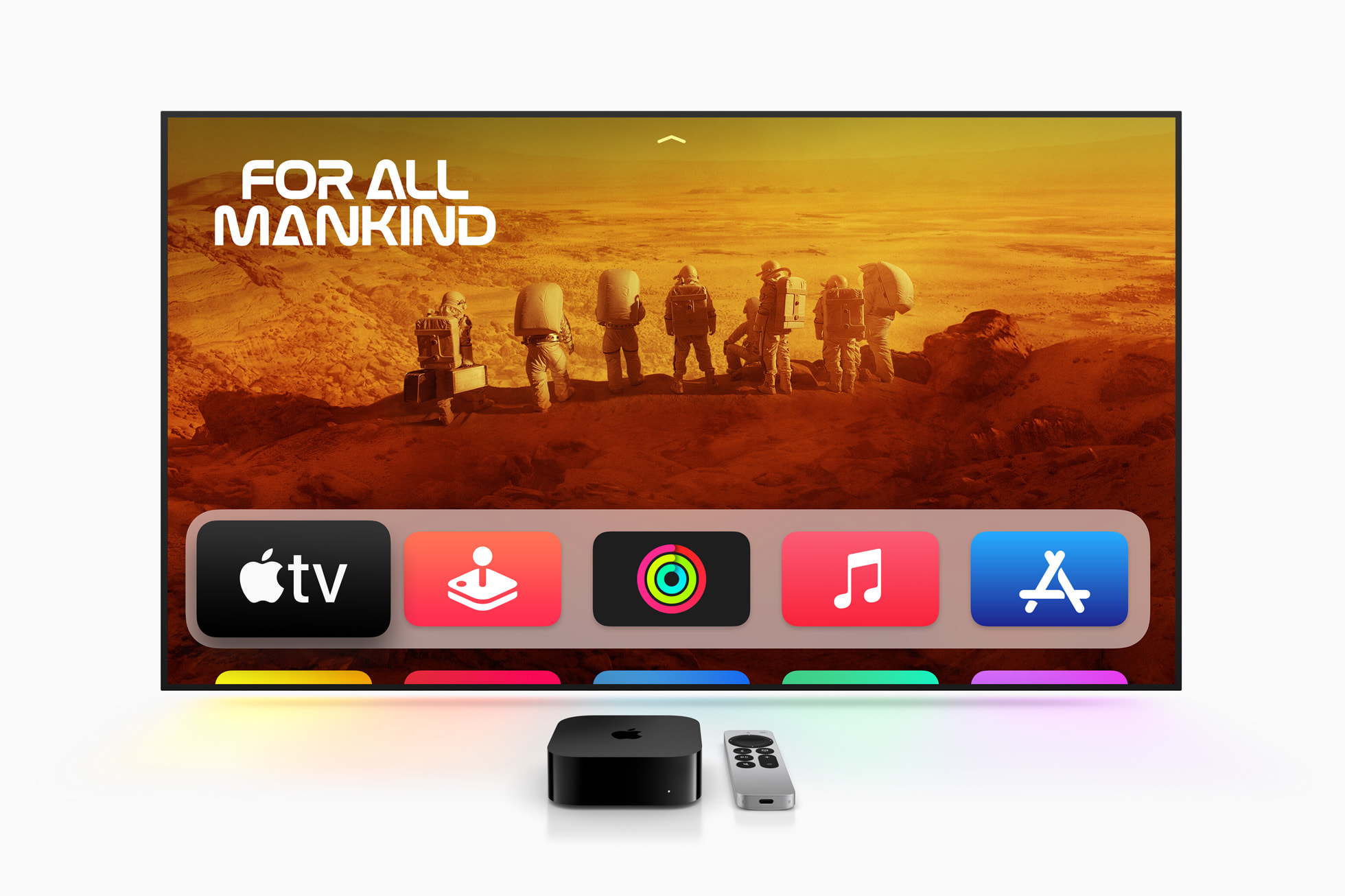
Image Credits: Apple
- Apple raised prices for Apple Music, Apple TV+ and its Apple One bundle in the U.S. Apple TV+, which is getting its first price hike, will increase by $2 monthly and $10 annually. Subscribers will be charged $6.99 per month or $69 per year. Apple Music is getting a price increase of $1 for individual subscribers and $2 for families. The individual plan will now be $10.99 per month and the family plan will be $16.99 per month. And the Apple One bundle will cost $16.95/month, $22.95/month and $32.95/month, respectively, for the individual plan, family plan and Premier plan.
- YouTube is raising the rates for its Premium Subscription for families across several countries, including the U.S., U.K., Canada and Argentina, effective November 21. In the U.S., the price is going up from $17.99 to $22.99. The plan allows up to five family members to watch ad-free videos, download videos for offline access and play videos in the background.
- Deezer also bumped its monthly premium price to $10.99 in the U.S.
- Given the competitors’ increases, Spotify’s CEO Daniel Ek noted on the earnings call that the company is considering a price hike as well. Spotify’s revenue in Q3 was up 21% YoY to €3.04 billion, MAUs were up 20% YoY to 456 million, and Premium subscriptions were up 13% YoY to 195 million. But Spotify’s stock dropped 6% after earnings due to a miss on advertising growth.
- YouTube’s mobile app on iOS and Android got a makeover that includes a new look, precise seeking, new buttons, ambient mode, darker dark mode and a “pinch to zoom” feature to see more details in a video. Later, the company rolled out an update across platforms that separated long-form, Shorts and Live videos into their own tabs on channel pages.
Gaming
- Microsoft CEO Satya Nadella said that more than 20 million people have now streamed games through Xbox Cloud Gaming, up from 10 million in April 2022. The gaming subscription service allows consumers to stream games to their phone via a web browser. This year, Microsoft brought the popular game Fortnite to the platform.
- TikTok is expanding further into games, according to the FT, which said the app would add a dedicated gaming tab by November 2, which would feature ad-supported mobile games and in-app purchases.
Government & Policy
- The U.K.’s Financial Conduct Authority said it plans to investigate Apple, Amazon, Google and Meta’s moves into retail financial services over competition and consumer harm concerns, the FT reported.
- Turkey’s competition authority fined Meta 346.72 million lira ($18.6 million) for combining user data across Facebook, WhatsApp and Instagram.
- India’s antitrust watchdog, the Competition Commission of India, fined Google $113 million for abusing the dominant position of its Google Play Store. It ordered the company to let app developers use third-party payments for in-app purchases or for purchasing apps and to drop any anti-steering guidelines. Google has three months to comply.
Security & Privacy
- Square parent company Block was reported to be selling access to customers’ email addresses used to receive receipts. While not illegal, privacy experts argue this means of selling marketing information is “walking a fine line,” per Protocol’s report.
- Apple patched a bug in iOS 16.1 and macOS Ventura that could have allowed apps with Bluetooth access to record users’ conversations with Siri without requiring microphone access.
- TechCrunch’s Zack Whittaker offered an inside look into TheTruthSpy, the stalkerware operation that’s spying on thousands of people worldwide, including in the U.S., via Android apps planted by someone with physical access to a person’s device. Leaked data from the operation includes call logs, texts, location data and other personal info.
Funding and M&A
 Free banking app Crowded raised $6 million in seed funding led by Garage, with participation from Deel co-founder Philippe Bouaziz, Innoventure Partners’ Michael Marks and a group of former bank executives. The app targets member-based nonprofits, like fraternities, sororities and booster clubs.
Free banking app Crowded raised $6 million in seed funding led by Garage, with participation from Deel co-founder Philippe Bouaziz, Innoventure Partners’ Michael Marks and a group of former bank executives. The app targets member-based nonprofits, like fraternities, sororities and booster clubs.
 Onward, an app designed to help co-parents navigate and managed their shared expenses, raised $9.7 million in Series A funding led by Atlanta-based TTV Capital.
Onward, an app designed to help co-parents navigate and managed their shared expenses, raised $9.7 million in Series A funding led by Atlanta-based TTV Capital.
 Joro, an app that helps people track and reduce their carbon footprints, raised a $10 million Series A led by existing investors Sequoia Capital and Amasia. Also participating were Norrsken, Nest co-founder Matt Rogers’ Incite, Jay-Z’s Arrive and Mike Einziger, the lead guitarist of Incubus.
Joro, an app that helps people track and reduce their carbon footprints, raised a $10 million Series A led by existing investors Sequoia Capital and Amasia. Also participating were Norrsken, Nest co-founder Matt Rogers’ Incite, Jay-Z’s Arrive and Mike Einziger, the lead guitarist of Incubus.
Downloads
Duolingo Math
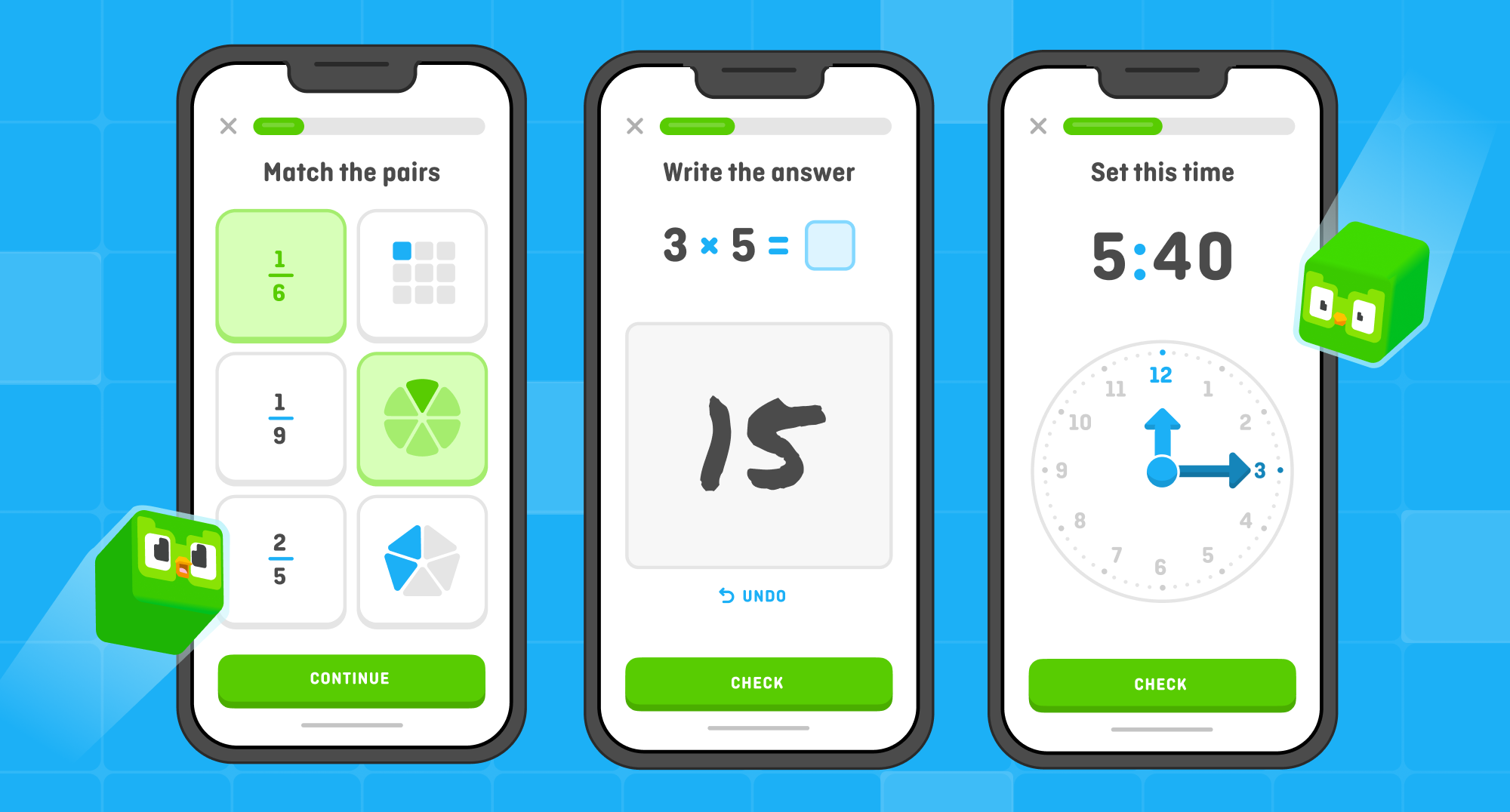
Image Credits: Duolingo
Language-learning company Duolingo officially launched its math app to the public this week, following beta trials. The app represents the first expansion beyond language learning and literacy for the company. The app allows users to choose between an elementary version that focuses on basic concepts like multiplication and division and an adult version that’s more optimized for “brain training” exercises that put skills into practice. A future version may even expand into higher-level math, like linear algebra or college-level math. The app is remaining free to use for the time being.
Pixel Pals
Apollo developer Christian Selig thought he’d have a little fun with the new iOS 16 feature, Dynamic Island, so he added a feature to his popular Reddit client called “Pixel Pals” that let users collect and care for small, animated pets that run atop the black bar at the top of the screen. The feature took off as people adopted their pixelated pets, fed them and played with them to earn their love.
Taking a cue from users’ interest, Selig launched a standalone app for Pixel Pals, which now allows pet owners to do more with their animated friends, including pinning them to the Home Screen as transparent widgets, adding them to the Lock Screen as animated widgets and enjoying them through iOS 16’s Live Activities, among other things. If anything, the app works to demonstrate iOS 16’s new features in a clever and entertaining way. Users seem to enjoy the new experience, too — as Selig noted this week, the app hit the top 3 in the Graphics & Design category on the App Store.
This Week in Apps: Elon buys Twitter, new App Store rules, gambling ads backlash by Sarah Perez originally published on TechCrunch


